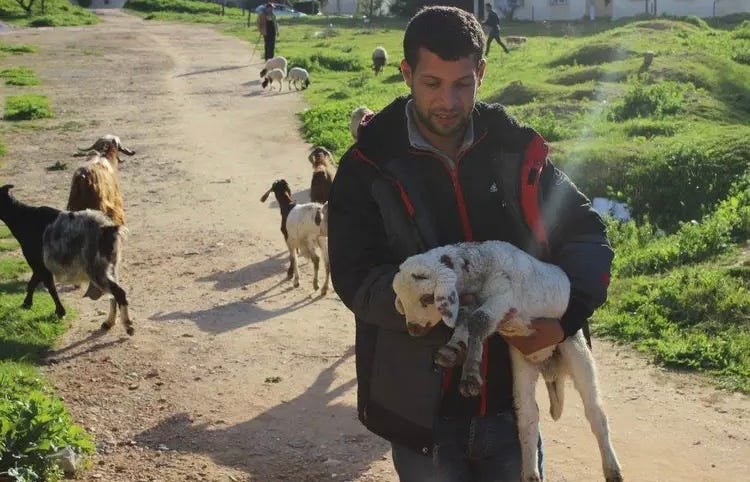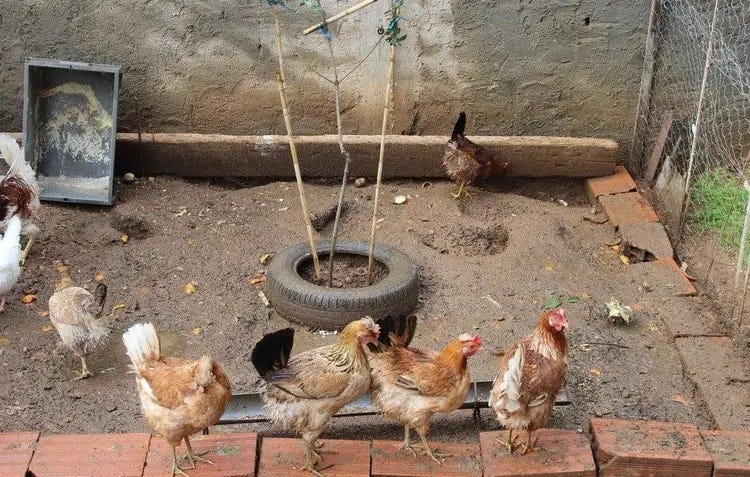Arabs rarely appear to be in the climate conversation, apart from talking about oil in the Gulf states. This is definitely an important conversation for another time. Arab is an interesting umbrella term for such a diverse, culturally rich and huge geographical region. In this newsletter I will mainly focus on North African peoples, although I'm sure similar traditions, customs and practices exist elsewhere in the Arab world. This article brings me great pleasure to write, reunifying my culture with environmentalism.
In recent years there has been much attention to sustainable living. This is particularly true in Europe and America. This utopic vision is often centred around electric vehicles, futuristic cities and high tech solutions.
But what if I told you sustainable cities are often less “interesting" than that, yet more accessible to us. In fact, we may already be sustainable through things like locally sourced food, DIY solutions and preserving ancestral traditions. This article focuses on sustainability through a lens of preserving cultural practices, many of which are intimately tied to local landscapes and ecology.
Locally sourced food
Locally sourced food is beneficial for the environment, with regards to both cutting emissions and maintaining a diversity of plants, animals and landscapes. Local food reduces the carbon footprint, as food is not flown from around the world. In the Arab world, it is common for streets to be lined with fruiting female trees. Many houses have lemon and orange trees as well as livestock. Many of us are familiar with each part of the supply chain, and can name where and who produces our food. This is a gift, and an ancestral tradition that we should hold dear.
In North Africa, local food traditions include nomadic farming. It is not uncommon to see goats and sheep grazing on different patches of land, and travelling with their owners. This ancestral tradition comes from our Amazigh roots, and is greatly beneficial to the environment. It encourages habitat regeneration as light grazing is good for the land. This cultural practice puts less strain on habitats compared to mass produced meat which strips the land of nutrients and resilience. In Western cultures this is called regenerative farming, and is becoming more popular.
Another tenement of our sustainable food system is preservation of cultural traditions. We take pride in our ancestral traditions and the holistic practices used to produce our food. Whether this is the production of harissa in Tunisia, or the ancestral olive trees in Palestine, our cultures are bound to our landscapes. Regeneration of our landscapes nourishes our cultures, and vice versa. A key thread linking nature and culture is preservation of our food systems. It is important to protect these inherent parts of our culture as our world becomes more globalised, homogenised and profit driven.
Zero waste
Zero waste is a term that is increasingly being used. We are producing a huge amount of plastic as a species and something needs to change. I am inspired by my family and community for their culture of reusing and upcycling objects as much as possible. I remember my Mamie once cutting an olive oil bottle in half and using it to hold toothbrushes; we thought it was genius. It is quite common to see glass jars reused and plastic bottles cut up and repurposed.
As well as this, our culture is pretty amazing at reducing food waste. Instead, other options are explored. This includes sharing food with neighbours or those in need, aligning with Islamic values of charity. After this, excess food scraps are fed to animals such as stray cats or yard chickens. This provides nourishment for wildlife. Both reusing plastic and using up food waste reduces the amount of waste sent to landfill, showing the importance of exploring other options first.
More-than-human relationships
This connection to multispecies communities reminds us that it's not only our world: animals, plants and other beings have their own kingdom too! Having cats line our streets brings our nurturing instincts into play. We connect to them as well as our animistic nature through offering play, care and food. I’ve met nomadic goat herders who treat them as their babies, finding the finest patches of pasture for them. When a human loved one passes, we commemorate them through nourishing wildlife. Many gravestones have a bird feeder built into them and it is tradition to replenish it while visiting your loved ones.
I hope this article has helped identify and spread awareness about North African cultural practices which are sustainable. Cultural preservation is environmental preservation.
Reflection space:
-do you have any cultural practices tied to environment?
-make note of 3 traditions you are proud of
-how can you practice these and carry them forward into the future?








